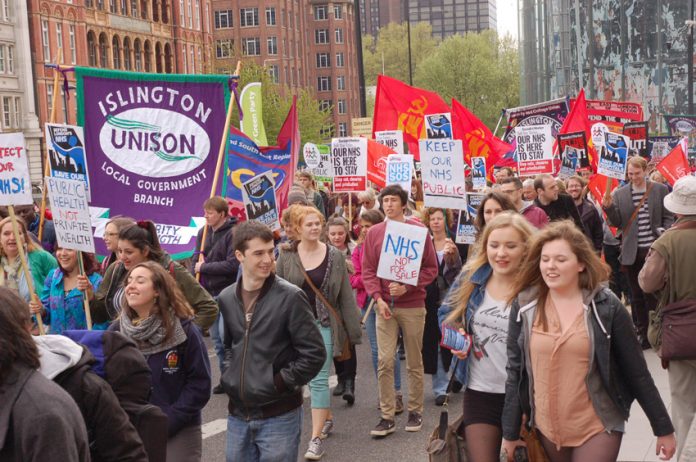
HEALTH unions have warned that the coalition government’s moves to withdraw a previously announced 1% pay rise for all NHS staff next year are ‘inflammatory’.
Over the weekend the Department of Health claimed the miserable 1% increase, following years of a pay freeze, was ‘unaffordable’ for health workers and urged the NHS pay review body to withhold the rise for 1.3m staff.
The Department of Health (DoH) said it proposes using the funding intended for the pay rise, instead, to ‘modernise’ pay structures.
It condemned automatic increments – linked to length of service and satisfactory performance – claiming they add £900m to salary costs.
The DoH has claimed no decisions on changes to pay have been taken and insisted that the independent pay review bodies will make their recommendations in February or March next year, the same as usual.
The plans, outlined in the DoH’s submission to two independent pay review bodies, have been criticised by the RCN, Unite and Unison.
RCN General Secretary, Dr Peter Carter, said: ‘It is demoralising for nursing staff to discover that while senior managers have enjoyed a pay increase of 13% since 2009, the government is asking nhs staff to take another pay freeze to save money.
‘It is completely unfair to say a pay increase of just 1%, following years of real terms pay cuts, will prevent employers from recruiting more nurses and put patient safety at risk.
‘It is simply wrong to imply that regular pay rises are awarded to NHS staff simply for time served when this is not the case.
‘Increments are only paid when a nurse can demonstrate their experience and skills have improved.
‘It is the responsibility of employers to ensure this appraisal system is working properly.
‘To demand further changes to the national pay framework before a pay increase can even be considered is unhelpful, particularly when changes linking performance and pay have only recently been agreed and employers have barely started to implement them.
‘Another year of pay freezes for frontline staff sends a message that their contribution is not valued, while putting staff under even more pressure, which is bad for patient care.’
Rachael Maskell, of Unite, said: ‘Staff who are holding the NHS together have already had two years of a pay freeze – 1% last year – and, quite frankly, are really falling behind inflation now with their wages.’
Christina McAnea, head of health at Unison and joint chairwoman of the NHS Staff Council, warned: ‘What they have done is inflammatory.’
‘We are not going to negotiate while a gun is held to our head for a paltry 1% pay rise – our members will not react well to that.
Dr Mark Porter, chairman of the British Medical Association, warned: ‘We’re going to find it increasingly hard to recruit, partly for the specialist skills and partly for the numbers of staff that we’d need to bring into the health service to implement the safe minimum staffing levels.’